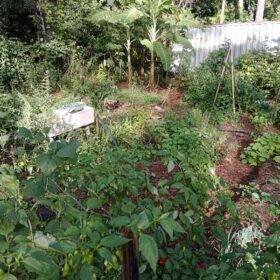Do you feel overwhelmed when you hear about the environmental crisis our world is currently facing? Climate change, soil erosion, water scarcity – these are terms we’ve all become too familiar with. What if I told you there is a way we can directly contribute to mitigating these issues right in our own backyards? This solution is called permaculture, a unique approach to sustainable living that anyone can adopt, no matter how green (or not so green) your thumb may be.
Permaculture is a concept derived from the words ‘permanent’ and ‘culture’, initially coined by Australian ecologists Bill Mollison and David Holmgren in the 1970s. But don’t let its complex-sounding name deter you. At its core, permaculture is all about designing ecological, sustainable and self-sufficient systems that can be implemented in your home, community or farm.
Summary:
-
Permaculture: A Solution to Environmental Crisis:
- Permaculture is a sustainable living approach that can be adopted by anyone.
- It promotes eco-friendly food production, resource efficiency, soil health, biodiversity, and community interaction.
-
Eco-Friendly Solution to Food Production:
- Permaculture encourages organic farming techniques that promote soil health and biodiversity.
- The absence of harmful pesticides and synthetic fertilizers ensures healthier and more nutritious food production.
-
Resource Efficiency:
- Permaculture promotes the idea of ‘waste as a resource’ by recycling and reusing waste.
- Efficient use of resources helps in reducing carbon footprint and overall impact on the environment.
-
Improving Soil Health:
- Permaculture techniques like composting, mulching, and crop rotation help to enrich the soil with essential nutrients.
- This fosters a productive and vibrant ecosystem right in your backyard and contributes to climate change mitigation.
So, why should you, a beginner in the world of permaculture, be interested in it? Let’s delve into some of the key benefits.
Eco-Friendly Solution to Food Production
One of the primary goals of permaculture is to grow your own food. It encourages the use of organic farming techniques, which promote soil health and biodiversity. The absence of harmful pesticides and synthetic fertilizers not only benefits the environment but also ensures that the food you produce is healthier and more nutritious.
Resource Efficiency
In a world where resources are rapidly depleting, permaculture promotes the idea of ‘waste as a resource’. It teaches you to make the most of your available resources by recycling and reusing waste. This might mean composting kitchen scraps or harvesting rainwater for irrigation. Such efficient use of resources helps in reducing your carbon footprint and overall impact on the environment.
Improving Soil Health
 Healthy soil is the bedrock of any productive garden. Permaculture techniques like composting, mulching, and crop rotation help to enrich the soil with essential nutrients, fostering a productive and vibrant ecosystem right in your backyard. This not only improves your crop yield but also helps sequester carbon from the atmosphere, contributing to climate change mitigation.
Healthy soil is the bedrock of any productive garden. Permaculture techniques like composting, mulching, and crop rotation help to enrich the soil with essential nutrients, fostering a productive and vibrant ecosystem right in your backyard. This not only improves your crop yield but also helps sequester carbon from the atmosphere, contributing to climate change mitigation.
Promotes Biodiversity
Permaculture design encourages diversity in plants, animals and microorganisms. This promotes a healthier, more resilient ecosystem that is better able to withstand pests and diseases. Greater biodiversity also leads to a broader range of produce and encourages a balanced diet.
Fosters Community and Self-reliance
Permaculture is not just about gardening; it’s a lifestyle choice. It encourages community interaction and self-reliance as individuals share resources and knowledge. It builds resilience against food scarcity and climate change while promoting a more sustainable and fulfilling way of life.
The power of permaculture is that it equips you with the skills and knowledge to create a sustainable, efficient, and harmonious environment. It’s an investment not only in your well-being but also in the health of our planet.
Now that you’ve gained a basic understanding of what permaculture is and the benefits it provides, are you ready to take the next step? To dive deeper and understand how you can apply permaculture principles to your own life, consider enrolling in a Permaculture Design Course (PDC).
Crystal Waters, Australia’s first permaculture village, offers a comprehensive course that you can find here: https://crystalwaters.org.au/permaculture-design-course/. Embark on your journey towards a sustainable future and become a steward of the Earth. We promise it’s a decision you won’t regret.
